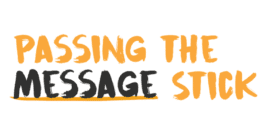Five times Australian charities made a difference through advocacy in 2019

16 December 2019 at 2:35 pm
As 2019 draws to a close, we look back at five major reforms that were made possible only through strong charitable advocacy.
Advocacy is an essential function of charities and a vital component of Australian democracy.
But it is an area sometimes misunderstood by the public and an activity that has come under attack from governments in recent years.
The federal Coalition government in particular has faced criticism in the past, for its attempts to stifle the advocacy efforts of environmental charities campaigning for action on climate change.
Sector leaders have long spoken of the importance of charitable advocacy, as something that complements the work charities do on the ground.
“To be effective charities, we need great service delivery but also to advocate for systemic change,” Save the Children CEO Paul Ronalds told Pro Bono News in September.
“And if we’re not doing both, I think we’re not actually serving our mission.”
Read more: Advocacy Under Threat as NFPs Engage in Self-Silencing
To highlight advocacy’s power achieving systemic change, we take a look back at five major reforms that the sector was able to achieve in 2019 through advocacy.
Disability royal commission
For several years, disability groups have called for a royal commission to properly address the violence and abuse people with disability have been subjected to in Australia.
A Senate inquiry in 2015 found there was an “epidemic” of violence and abuse against people with disability, and its main recommendation was for the urgent establishment of a royal commission.
But the Turnbull government rejected this call for an inquiry, leading more than 160 civil society groups and over 100 academics to write an open letter to the prime minister in 2017 demanding action.
While this plea fell on deaf ears, the sector continued to advocate for an inquiry, winning the support of Labor and the Greens.
Eventually, the government bowed to growing public pressure and launched a royal commission in April this year.
The three-year, $528 million inquiry is examining violence and abuse of people with disability in all settings.
The commission has already uncovered shocking cases of abuse, including evidence that people with disability were being physically restrained, “chemically castrated”, and sexually assaulted in group homes.
NSW’s abortion laws
After the successful 2018 campaign to decriminalise abortion in Queensland, advocates turned their attention to New South Wales this year to great success.
Legislation removing abortion from the NSW Crimes Act passed in September, following nearly 40 hours of discussion in the NSW upper house.
Sinead Canning, the campaign manager of the NSW Pro-Choice Alliance, told Pro Bono News the concerted efforts of the 70 legal, health and community groups behind the alliance were “instrumental” in achieving decriminalisation.
She said for other advocacy issues such as government action on climate change, a rethink may be needed on how it is presented to those in power.
“As the progressive movement goes on, I think they really need to consider how they present issues to the public and to decision makers, because so far it hasn’t been that effective,” she said.
“Starting with the building of a strong, diverse coalition and coming up with a campaign that relates to people’s day-to-day lives are some of the more effective ways to create change.”
New targets to remove young people from aged care
Advocates have spent years campaigning to end the practice of young people with disability being forced into aged care homes because there is nowhere else for them to go.
In 2018, there were around 6,200 people under the age of 65 living in residential aged care in Australia.
While the National Disability Insurance Scheme was expected to help young people with disability find suitable housing, it was revealed last year that more than one in 20 young people living in aged care had their NDIS applications rejected.
Through the work of organisations such as the Summer Foundation, the issue was included in the scope of the aged care royal commission, which helped shine a light on the severity of the issue.
The work of advocates paid off in November, when the Morrison government announced new targets for removing young people from nursing homes, in response to the aged care royal commission interim report.
The government vowed there would be no people under 65 entering aged care by 2022, no people under 45 living in aged care by 2022, and no people under 65 living in aged care by 2025.
This commitment is backed by a $4.7 million government investment, which includes funds to establish a Joint Agency Taskforce to develop a new strategy to meet these targets.
It will also work with the sector to identify all available Specialist Disability Accommodation and Supported Independent Living supports around Australia, to create a database of existing and new housing options available for people with disability.
Public drunkenness laws
Public drunkenness laws have long been labelled unnecessarily punitive and racist in nature, and removing them was a key recommendation of the 1991 Royal Commission into Aboriginal Deaths in Custody.
But the laws continued to remain in place in Victoria, angering community groups especially in the wake of Tanya Day’s death in custody.
Day – a proud Yorta Yorta woman – died in late 2017 of a brain hemorrhage, from a head injury sustained while in police custody for public drunkenness.
In April, more than 80 community groups called on the Victorian government to abolish the offence of public drunkenness, noting that more than 400 Aboriginal and Torres Strait Islander people had died in custody since the royal commission in 1991.
The advocacy efforts of the sector were rewarded in August, when the state government announced it would decriminalise public drunkenness and replace it with a health-based response.
This leaves Queensland as the only other state to have not decriminalised the act.
Social Impact Investing Expert Panel established
The impact investment market in Australia has grown significantly in recent years, and governments are beginning to take heed of its power to address entrenched disadvantage and society’s most complex social problems.
This recognition has come on the back of strong advocacy work of groups such as Impact Investing Australia (IIA), which has spent years engaging with the federal government through Parliamentary inquiries, discussion papers, and roundtables.
As a result, the government earlier this year announced the creation of a Social Impact Investing Taskforce, which will develop a strategy for the Commonwealth’s role in the social impact investment market.
Social Ventures founding CEO Michael Traill AM is chair of the panel, and said it would work with the government to develop practical recommendations to grow impact investing in Australia.
“While the market has continued to evolve, there is in particular the potential for developing larger scale impact investments that appeal to major institutional funders which has the capacity to transform the size of the market,” Traill said.
But advocates aren’t done yet. IIA is now calling on the government for a one-time investment in Impact Capital Australia, which is an independent institution designed to unlock capital and capacity to tackle social issues at scale.







